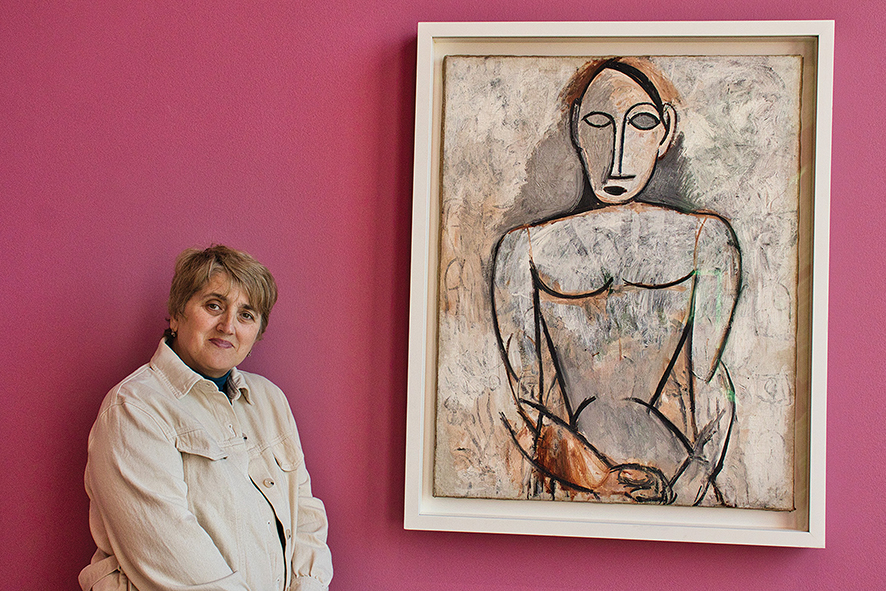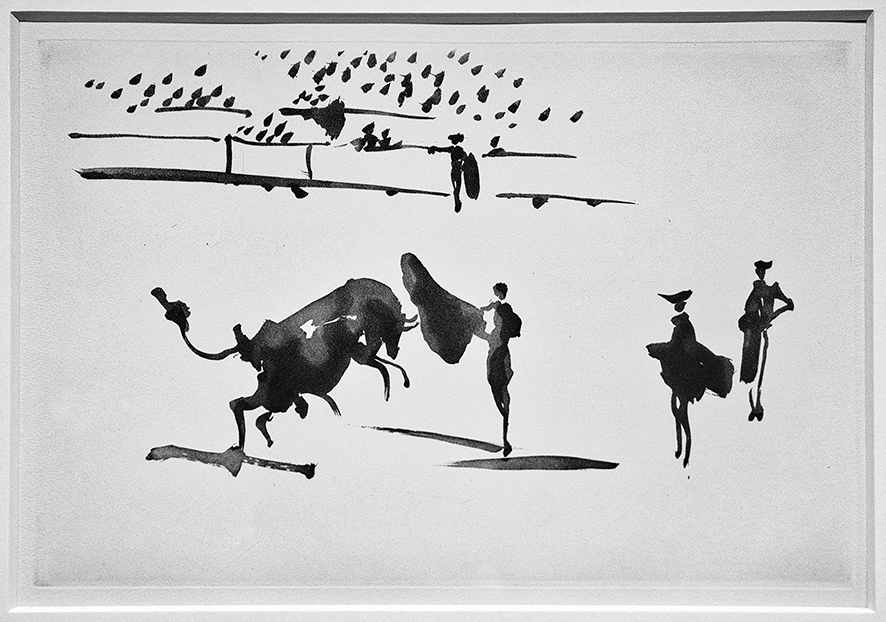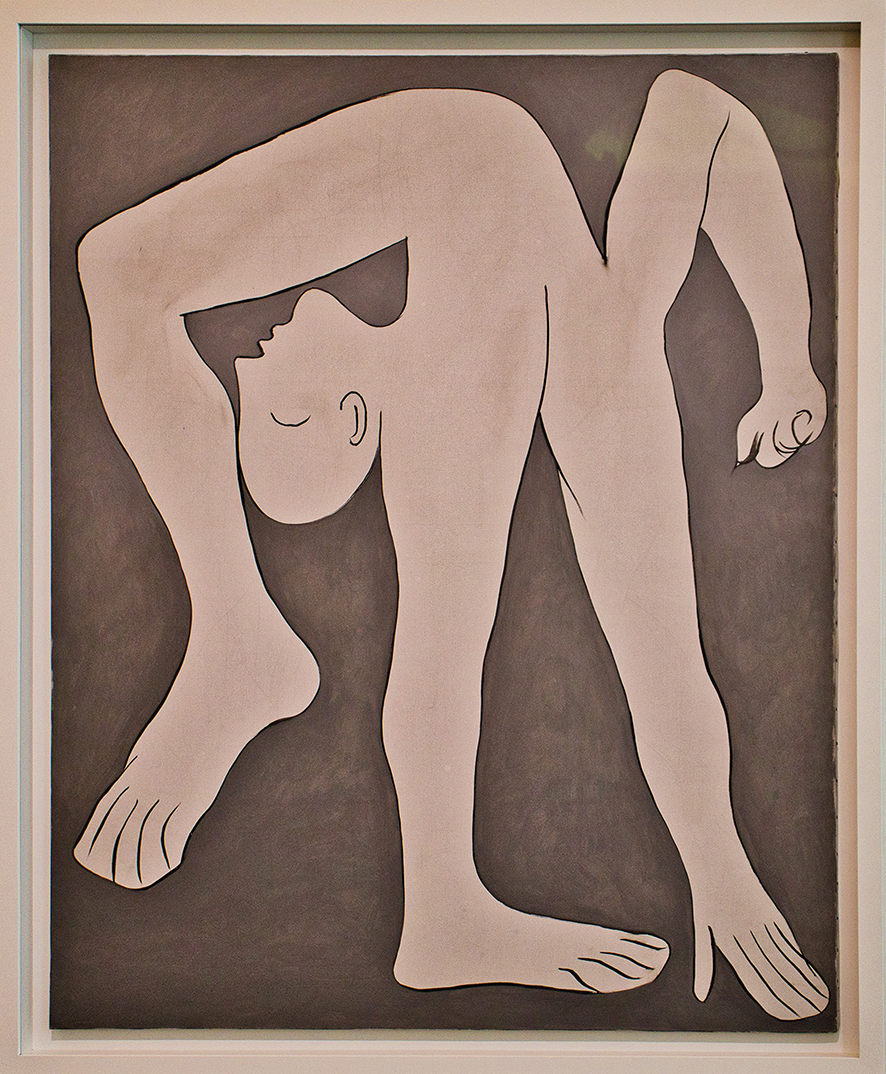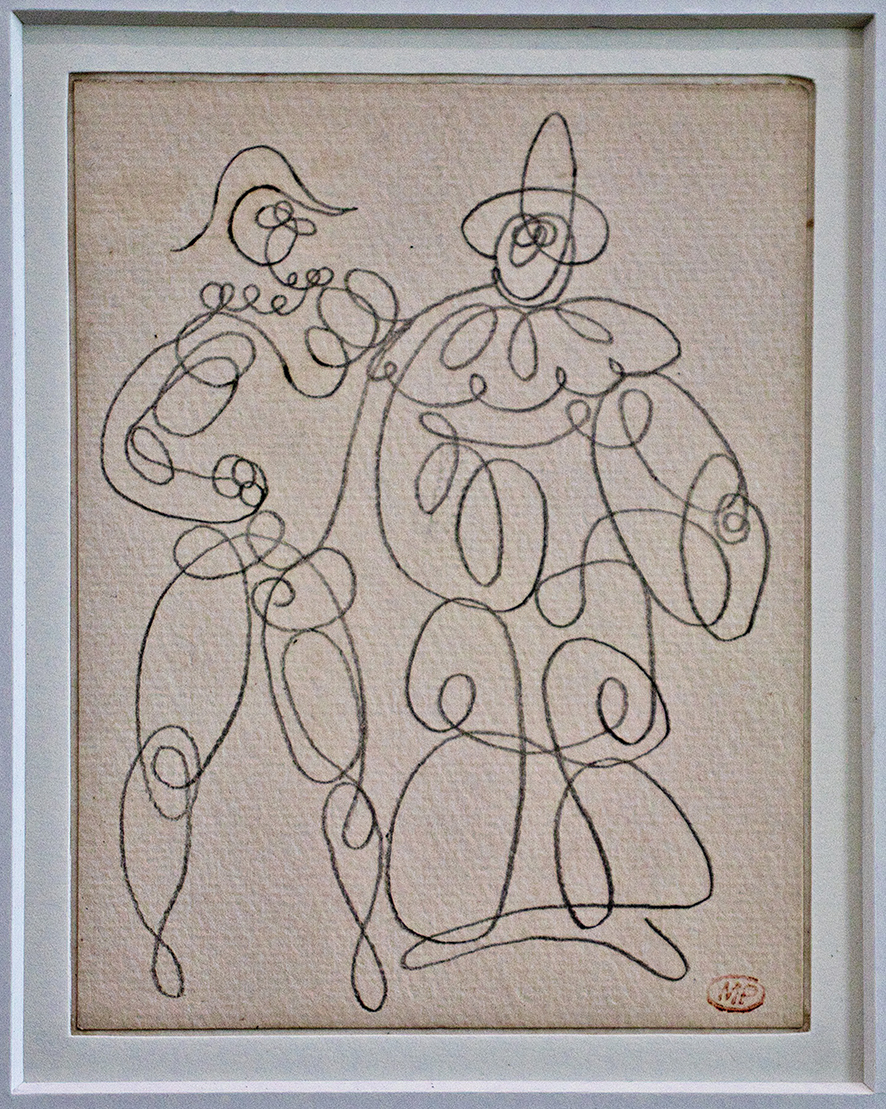Of COURSE we didn’t have enough time in Paris: what’s three days in the capital city of the country which gets more tourists than any other in the world? But we made the most of it. Lyon’s week prior to that, at least, gave us much more to see. And we came away intent on getting more; although now Italy beckons too…
One mistake which I kick myself for, a little, was in the Louvre, which we had to dash through on Free Museum Night, May 13. I missed seeing the Venus de Milo, another hugely important sculpture: zut! Never mind, she’s waited these many centuries and can wait some more. At least La Gioconda and Nike gave me thrills. That night, we also missed the Pompidou Center, which has a fabulous collection of Impressionists. But you have to choose: skim more museums, or dip deeply into a few? We went with the latter, and were well rewarded by Picasso and Rodin.

I became aware of how much French and English are linked when seeing so much of it written everywhere. We have so many words which are identical in both spelling and meaning, although their pronunciation is usually quite different, so this similarity comes out less when listening to French being spoken. These links come partly from the centuries when the Normans, starting in 1066, invaded and took over Britain; partly from our two languages being in the same family, and also having many common roots in both Latin and Greek. About 30% of English comes from French!

But there are also words which, written, are the same in both languages but mean completely different things, so-called false cognates. “Pain” in English means “bread” in French. English “or” is French “gold”. So one has to be careful with what one reads. Here’s a short list of other “faux (false) friends” in both languages: bras, cent, attends, coin, con, crayon, douche, comment.

If English, with its tortured pronunciation, can have hugely popular spelling competitions up to national level in North America (called spelling bees), why not French, with its perhaps equally challenging pronunciation? Apparently they have a dictation competition, which is a similar thing: writing the words instead of spelling them out in speech. Many languages, though, are simply too phonetic for this to work, including Georgian. Ask any child who knows the Georgian alphabet to spell or write any Georgian word, and they can.

There are also many French words or phrases simply borrowed into English and left untranslated, such as a la carte, agent provocateur, au pair, bon voyage, carte blanche, coup d’etat, deja vu, en route, grand prix, hors d’oeuvre, RSVP and many more.
We did our best to say “Bon jour” (good day) when entering any building with people present, as instructed: this is “de rigeur” (required by culture) in France. If you fail to say it, you can be ignored! At least my attempts to start speaking in French before asking to switch to English were met with approval everywhere, which was a relief. I had been instructed how to say “My French is bad”: “Mon Francais es mauvais”; what I wanted to try as a joke, but didn’t, was “Mon Francais es un enfant terrible” (my French is a terrible child, those last two words having their own slang meaning in French).

I am glad that my years of learning French from school in Canada, ending 40-odd years ago, were waiting to be dug up and dusted off, and my wife and I were both surprised by how much I remembered. Au revoir (until we meet again), la France!
BLOG by Tony Hanmer
Tony Hanmer has lived in Georgia since 1999, in Svaneti since 2007, and been a weekly writer and photographer for GT since early 2011. He runs the “Svaneti Renaissance” Facebook group, now with nearly 2000 members, at www.facebook.com/groups/SvanetiRenaissance/
He and his wife also run their own guest house in Etseri: www.facebook.com/hanmer.house.svaneti














